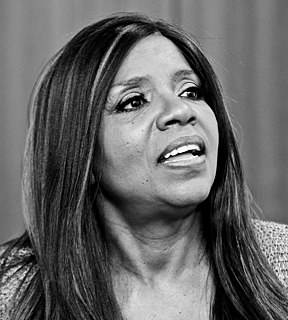A Quote by Stephanie Coontz
In industrial countries where male privilege is still firmly entrenched - in Spain, Italy, Japan, and South Korea, for example - women are delaying marriage longer than in America, and often resisting childbearing as well. They are less likely than American women to say that marriage is a good deal.
Related Quotes
There is no going back to a time when most women will feel compelled to enter or stay in a bad marriage just for economic security or social respectability. So today, the best way to get women once more interested in getting married and having children is for men to accept women's new insistence on equality. This is, I think, why educated women in America, are now more pro - marriage and more disapproving of divorce than other groups of women who have less experience with egalitarian partners or less clout in getting their needs met in relationships.
Japan admitted the Imperial Army ordered the building of these brothels and the trafficking of the women. And now that it's been 70 years, there are only 46 remaining comfort women still alive in South Korea. So also in this deal, Japan is going to pay 1 billion yen - that's about 8 million U.S. dollars - to provide social services and health care to the surviving victims.
People can't help the way they feel, only what they do about it. They can no longer not be attracted to someone other than their spouse than they can say they are not hungry or not thirsty or not frightened or embarrassed. It's when you act on that attraction when you know it would be bad for your marriage that is the problem. In a good marriage, the couple are each as committed to the marriage as they are to each other.
There may be countries [where] there's no gender inequality in schooling, even in higher education, but [where there is] gender inequality in high business. Japan is a very good example of that. You might find cases in the United States where at one level women's equality has progressed tremendously. You don't have the kind of problem of higher women's mortality as you see in South Asia, North Africa, and East Asia, China, too, and yet for American women there are some fields in which equality hasn't yet come.
Women have always been more critical of marriage than men. The great mysterious irony of it is - at least it's the stereotype - that women want to get married and men are trying to avoid it. Marriage doesn't benefit women as much as men, and it never has. And women, once they are married, become very critical of marriages in a way that men don't.
Living with a nuclear North Korea could give its leaders the confidence to act more aggressively versus South Korea. It could also, over time, drive both South Korea and Japan, as well as countries farther afield such as Vietnam, to reconsider their non-nuclear postures. The stability of a critical region of the world would suddenly be in doubt.
Man is less interested in marriage, very much less interested. In fact not interested at all. If he agrees, he agrees only reluctantly - because marriage means responsibility. Marriage means bondage, marriage means now you are imprisoned. Now you are no more free to move with other women. For a man, marriage looks like a prison. For a woman, marriage looks like safety, security, a home. For a woman marriage means home, and for a man marriage means slavery. Total different beliefs, so they act differently. Conflicting beliefs.
When women gain access to higher education and then suddenly start doing better at it than the men, that can really throw the prevailing social order out of balance. That's exactly what's happened in South Korea, which is a highly patriarchal society. They started educating women, and then they were no longer the women that society wants them to be. That caused a real cultural crisis.
































